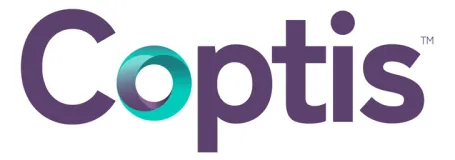Marketing, Formulation, Regulatory Affairs, Quality… Improve the synergy of your teams with Coptis PLM
Developing new cosmetic products mobilizes several teams: marketing, formulators, regulatory, and quality departments… each playing a decisive role in meeting customer expectations and industry requirements!
But how do you orchestrate these different contributions, share data efficiently, and bring projects to life in the best possible conditions? Coptis PLM is a software solution for cosmetic laboratories that provides an appropriate response to these challenges. Find out more in this article!

Reminder: Many departments involved in the development project
A cosmetic product is the result of the work of several departments. Here are the main departments involved:
Marketing Department
To offer the best products, marketing teams analyze current trends and consumer needs. They also try to identify what will work in the future to stay ahead of the curve.
The marketing department guides the other departments, providing a brief list of precise elements: desired effects of the product, ingredients to favor or avoid, price, launch plan, etc. These guidelines form the basis of the project and guide the subsequent stages.
Formulators
Their job is to translate the brief’s requirements, which is not easy! They are responsible for creating innovative, safe, and effective products while juggling budgetary and regulatory constraints. Their products must also keep up with market trends while meeting deadlines.
The selection of raw materials and suppliers must also meet these objectives and reflect the company’s commitments.
Formulators must deal with numerous parameters and rely on powerful tools to leave nothing to chance. Thanks to their scientific expertise, they are the only ones who can translate a project into a formula. However, specific software programs allow them to optimize their work and save time so that they can focus on innovation.
Quality
Quality control involves the analysis of raw materials and finished products. The aim is to ensure their conformity by verifying microbiological analyses, chemical and physicochemical analyses, or analyses of heavy metals. The objective is to check that raw materials, finished products, packaging, and labels do not contain any harmful substances or microorganisms that could harm the consumer’s health. To achieve this, various tests are carried out: pH, viscosity, density, stability, tolerance, efficacy… each parameter is meticulously evaluated.
Regulatory Affairs
Regulatory Affairs ensures that formulations meet current standards, depending on the region in which they will be marketed. They also prepare the necessary documentation, such as the Product information dossier.
Although these departments are complementary, it is sometimes difficult for them to work together smoothly during the various stages of development. This is often the case:
– Data is scattered across different systems or tools.
– Collaboration is complex because information doesn’t flow smoothly, which can lead to back-and-forth processes.
– A lack of traceability makes it impossible to efficiently track projects, know the origin of key data, or keep track of the latest updates.
In response, Coptis PLM can centralize all data, streamline exchanges, and provide greater transparency for optimized communication between all stakeholders from the earliest stages of development.
Coptis PLM: a platform for improved collaboration
Coptis has developed a modern solution to improve team synergy and how people work together. Here are the key points of the software to save time and improve the efficiency of your projects.
Centralized information
Using Coptis PLM, each department can access key information (raw materials, tests, regulatory requirements, etc.) in real-time and work from a common, reliable base. This makes it possible to monitor projects more effectively based on constantly updated data and to avoid the risks associated with misunderstandings or outdated data.
As a result, each department has the information it needs to move forward without chasing after other departments to make progress.
Maintaining compliance
International regulations are constantly evolving, and Coptis PLM keeps you updated with its database validated by regulatory experts.
What’s more, a system of automated alerts signals potential non-compliance at an early stage of development. This reduces the risk of time-consuming (and costly!) back-and-forth between regulatory teams and R&D. The software alerts the relevant teams as early as the formulation design stage if changes are required, depending on the geographical zone in which the product will be launched.
Automation of low-value-added tasks
Thanks to its automation tools, Coptis supports teams in tedious, repetitive tasks such as document generation (PIF, list of ingredients, labeling, etc.). The information is immediately available to the teams concerned. This approach frees up time for formulators, quality, or regulatory teams to concentrate on their core missions.
Better test follow-up
Coptis PLM facilitates test planning with automatic reminders and centralizes results with instant sharing for smooth collaboration. As a result, teams benefit from better visibility of the remaining stages and adjustments to be made.
Assured data traceability
All modifications are recorded, providing total transparency in project tracking for every employee. Data is accessible to each department via secure, personalized access according to the degree of information to be shared.
Interoperability
Coptis PLM integrates easily with other systems (ERP, production management tools). This link improves coordination and enables other departments ( purchasing, procurement, production, etc.) to collaborate just as effectively with this centralized information.
Coptis: a partner from A to Z for rapid innovation
With over 25 years of experience, Coptis supports cosmetics laboratories in their development projects by strengthening collaboration between departments. Project management is simplified: each phase is planned and monitored via a single interface.
Integrated functionalities (raw materials information, compliance, test tracking, automatic document generation, etc.) enable each member to work in sync while relying on automation tools for greater efficiency.
Innovation is at the heart of the cosmetics industry. Our team, made up of experts in cosmetic chemistry and IT, is committed to offering an ever more effective solution. To achieve this, we integrate feedback from our User Club and recommendations from our customers in a continuous improvement process.
Would you like to find out more about Coptis PLM? Contact our teams or request a demo!





